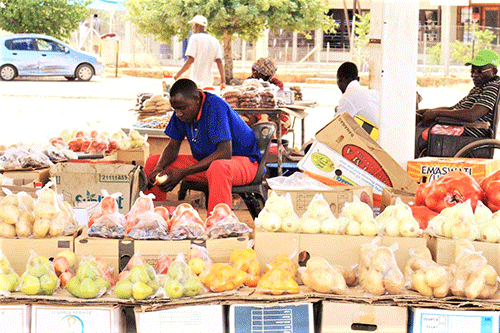More than 418 000 Namibians are employed in the informal business sector. This speaks volumes, as it is widely recognised that informal businesses, particularly in developing countries, are a catalyst for economic growth.
These figures were revealed yesterday by Namibia Red Cross Society (NRCS) secretary general Glynis Harrison during the launch of a cash and voucher assistance intervention project for small businesses in Windhoek. She noted that small businesses are the lifeguards of many families in Namibia.
The NRCS, in collaboration with the Australian High Commission, is piloting the intervention, scheduled to run for three months (March to May 2022). Harrison explained that the project will identify 50 small businesses in Windhoek to support with cash and vouchers in the amount of N$2 500.
“These funds will assist in boosting small businesses which have been affected by the Covid-19 pandemic. From the 50 businesses that will be identified, 60% will target women and youth-owned businesses,” she clarified.
According to her, the intervention will also look at capacitating business owners with basic training such as rudimentary bookkeeping. Capacity-building in basic business skills is expected to support the implementation of turnaround and turnover improvement plans.
In a speech delivered on her behalf, Khomas governor Laura McLeod-Katjirua said the unexpected outbreak of the pandemic taught people many hard lessons as the devastating economic impact severely constrained tangible revenue streams for many local communities.
“This gesture comes at the right time as the country’s business fraternity is trying to recover from the effects of the pandemic. The informal sector was hit hard, and given the nature of its vulnerability, many businesses closed or failed to pick up from the devastating effect of Covid-19,” the governor stated.
McLeod-Katjirua added that the informal sector creates much-needed employment, and enables many families to make ends meet.
The sector, she said, includes a wide range of activities not limited to street vending, food processing and other small activities that require little or no capital and skills.


